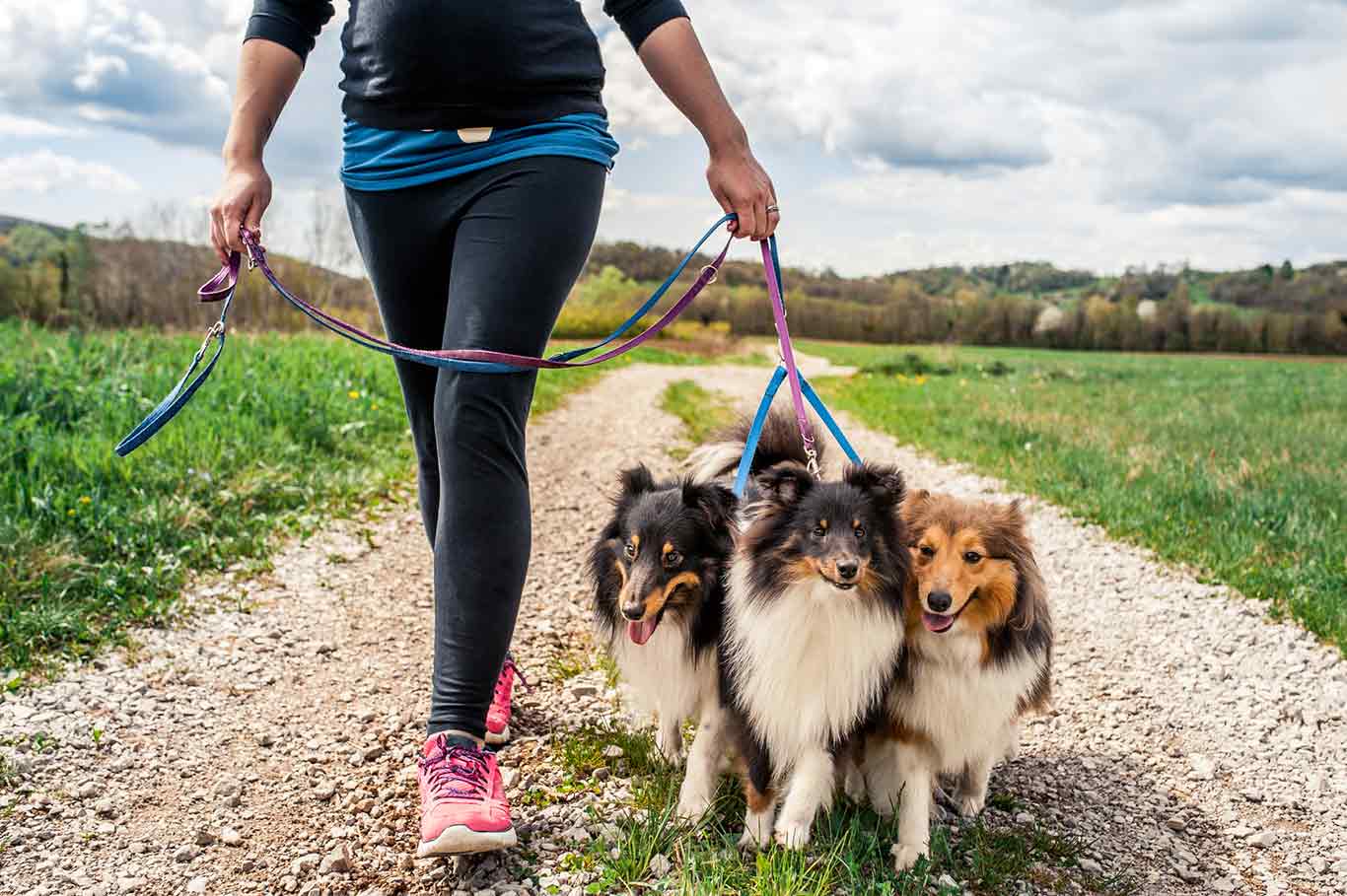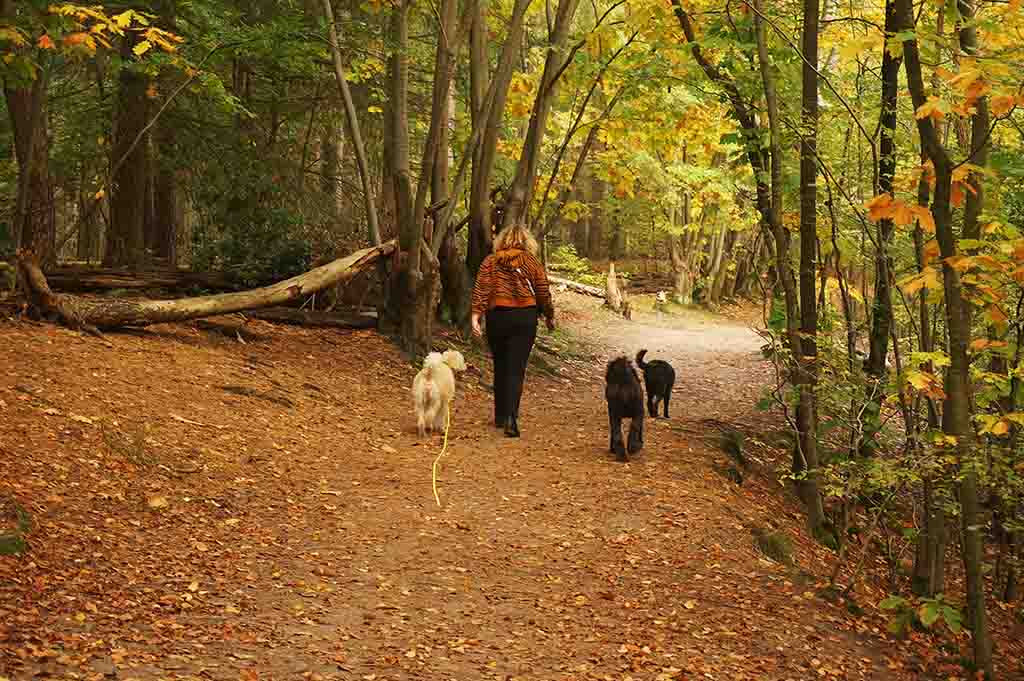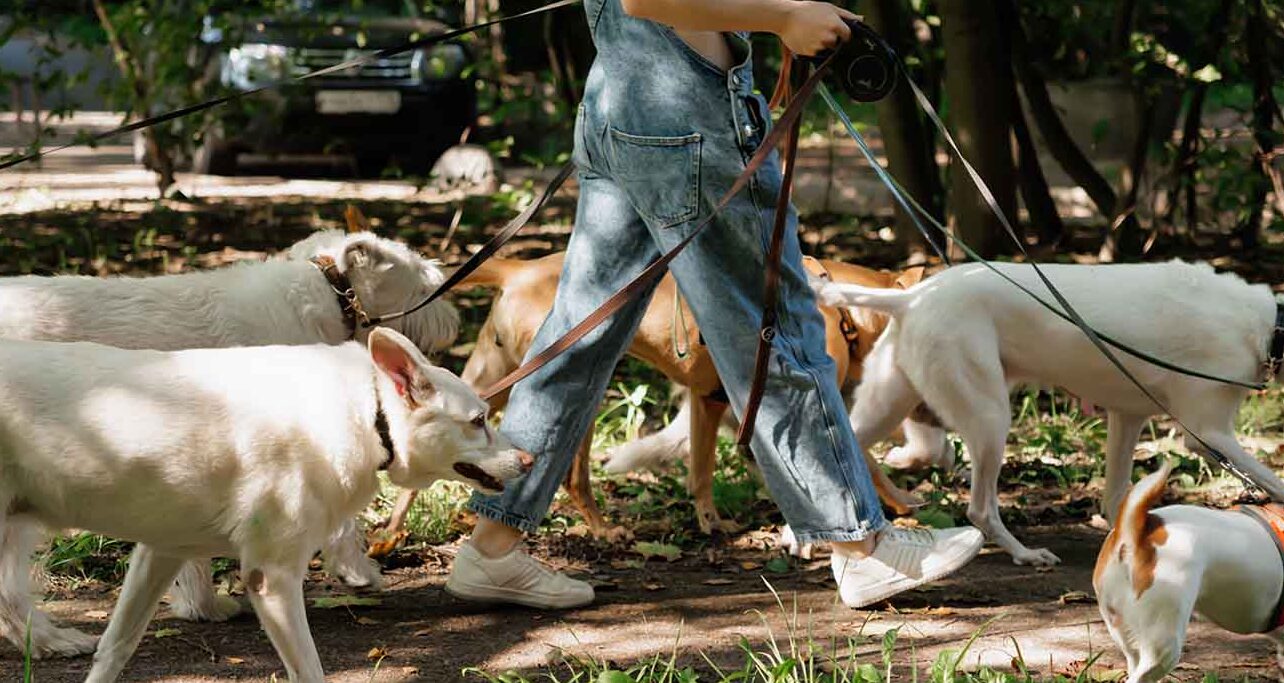Table of contents
From April 2025, new licensing rules and conduct standards have been introduced – and if you walk dogs, they may apply to you.
Over the past few years, the number of professional dog walkers using the parks has grown significantly. In many ways, that’s a positive reflection of just how valued your work is supporting busy pet owners and giving dogs the exercise and stimulation they need. The vast majority of walkers are responsible, thoughtful, and committed to high standards of care.
But with that increase, there have been growing concerns too. Some dog walkers are taking out large packs, straying into sensitive areas, or leaving behind mess, issues that, unfortunately, impact the whole profession.
Royal Parks are shared spaces. They’re not just for dog walkers and owners, but also for runners, cyclists, families, nature lovers, and visitors from all over the world. The aim of these new rules is to make the parks safer, more inclusive, and more sustainable for everyone who enjoys them, human and canine alike.
So, what exactly has changed? We’ve highlighted the key changes and what you need to do to ensure you follow the rules.
What’s changed?

From April, all professional dog walkers must have a licence to operate in Royal Parks. This applies whether you walk one dog a day or four dogs at once. The changes come as part of an effort to make the parks safer, cleaner, and better protected for people, wildlife, and dogs alike.
So, what’s actually being introduced?
- Mandatory royal parks dog walking licence per park
- Limit of 4 dogs per walker at one time
- Designated walking zones
- A formal Code of Conduct
- On-the-spot checks and potential fines for non-compliance
How much does a licence cost?
The licence cost depends on which park(s) you operate in. You’ll need to pay per park, and the annual fees are as follows:
| Royal Park | Annual Licence Cost |
| Richmond Park | £350 |
| Hyde Park | £300 |
| Bushy Park | £300 |
| Regent’s Park | £275 |
| Greenwich Park | £250 |
| St. James’s & Green Park | £200 |
N.B Planning to walk in more than one park? You’ll need a licence for each one.
Where does the money go?
An added cost is never welcome. But it’s helpful to know that these fees aren’t just vanishing into the ether.
The funds will be used to:
- Hire more rangers and enforcement staff
- Support habitat protection projects
- Improve park signage and waste facilities
- Help maintain paths, dog bins and general cleanliness
- Fund education initiatives for dog owners and the public
So, while it’s an upfront cost for you, it contributes to making the parks better for everyone, including your four-legged clients.
Get Dog Walking Liability Insurance

How to apply for a licence

You’ll be able to apply online via the Royal Parks’ official website. Here’s a rough breakdown of what you’ll need:
Application essentials:
- Public liability insurance (minimum £2 million cover)
- Basic DBS check
- Canine First Aid certificate (some parks may require this)
- Details about your dog walking business
- Payment for the chosen park(s)
Once approved:
You’ll receive a digital or physical licence permit and may be required to wear a visible armband or ID badge when walking in the parks.
Rules you’ll need to follow
The new rules aren’t just about paperwork. Once licensed, you’ll be expected to stick to specific operational limits. Key ones include:
- Maximum of 4 dogs per person
- No use of extending leads in busy or sensitive areas
- Dogs must be under control at all times
- Avoid restricted areas (e.g., children’s playgrounds, conservation zones)
- Clean up after all dogs
- No dogs with behavioural issues (e.g., aggression) unless under special exemption
Code of Conduct
Alongside the practical rules, there’s now an official Code of Conduct for professional dog walkers. Think of it as your ethical compass when walking in Royal Parks.
Main points include:
- Respect other park users – give space to joggers, cyclists, and families
- Be courteous to park staff and enforcement officers
- Never leave dogs unattended or tied to benches/fences
- Only use positive training methods
- Always carry water and waste bags
- Keep your licence visible while working
- Report any lost dogs, incidents or hazards
The idea is to maintain a high standard of professionalism and to keep things pleasant for everyone sharing the park.
Why the change?
Royal Parks have seen a huge increase in dog walkers, especially since the pandemic. While most walkers are responsible, there’s been a rise in complaints over the past few years, including:
- Large groups of off-lead dogs overwhelming paths
- Dog mess not being cleared
- Conflicts between walkers and other park users
- Disturbance to wildlife and protected habitats
These changes are being backed by major organisations, including:
They all support the move toward clearer standards and responsible commercial dog walking.
FAQs
Can I still walk dogs in parks without a licence if it’s not my job?
Yes – if you’re walking your own dogs or helping a friend as a one-off, you don’t need a licence. These changes are aimed specifically at commercial/professional services.
What if I walk more than 4 dogs with another colleague?
Each person in your team needs a separate licence and can walk up to 4 dogs each.
Will there be checks?
Yes. Park staff will have the authority to check for licences, and non-compliance could result in a fine or being banned from the park.
We understand these changes may feel like another hoop to jump through but in the long run, they’ll help protect the reputation of professional dog walkers, improve the park experience for everyone, and safeguard our beautiful green spaces.
Taking the time to get licensed and following the new code not only ensures compliance, but it also shows your clients (and their dogs) that you’re serious about standards and the welfare of their beloved pets.
Get Dog Walking Insurance from Protectivity
*Disclaimer – This blog has been created as general information and should not be taken as advice. Make sure you have the correct level of insurance for your requirements and always review policy documentation. Information is factually accurate at the time of publishing but may have become out of date.
Last updated by

















